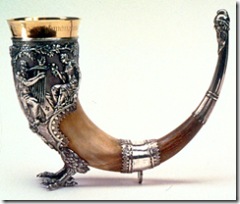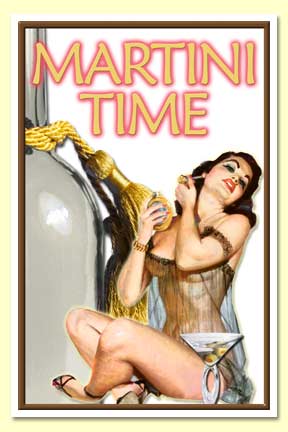
When it’s time to relax, when it’s time to celebrate, it’s time to break open the champagne of beers.
Today I began my new career as a Magenic Technologies consultant. I first became acquainted with Magenic through my work a few years ago with the CSLA framework which, during a time when business objects were all the rage, was one of the few technologies that implemented the concept well. Even better, the framework dovetailed perfectly with the emerging interest in code generation, and all of the major code generators, de rigueur, are obliged to support templates for CSLA due to its central place in the development of the field. After all, what’s the point of having a code generator if you don’t know what you are going to build with it?
CSLA is the brainchild of Rocky Lhotka, whose book Visual Basic 6 Business Objects not only introduced many VB programmers, including myself, to the world of Object Oriented programming, but probably helped pave the way for the later success of C#. Rocky Lhotka, in turn, is a principal consultant for Magenic.
If any of these claims seems a bit grandiose, I suppose it is fair to say that I am somewhat partisan at this point — though I feel confident that had I written this yesterday, I would have said much the same. And since I have in effect attempted what is commonly referred to as a "full disclosure", I might also add that Magenic has a reputation for having some of the smartest people doing software development today — which begs the question of why they hired me, but I’ll leave that for a later post … maybe …
The only fly in my vocational ointment is the fact that Bill Ryan, with whom I was looking forward to working, who actually tech interviewed me for the consulting position and helped me to get the job, is now leaving Magenic. For some reason I had gotten it into my mind that he would mentor me in the ways of the modern software consultant, would guide me through my first book writing venture, would lead me through the dazzling new technologies coming out of Redmond — but instead he is heading off to form a (undoubtedly successful) consulting business of his own in South Carolina.
And if I now come across as a bit lugubrious, it is probably due to the fact that I am somewhat tipsy. Not from Miller High Life, however — a noxious beverage, all things considered, which cannot hold a candle to the fine brews I lived on for a year in Central Europe. Instead I’m drinking a lovely distillation my wife bought for me for Christmas: Labrot and Graham’s Woodford Reserve Distiller’s Select Kentucky Straight Bourbon. I horde it like a miser, only bringing it out for special occasions, drinking it neat with a splash of water, rather than iced down as I normally do with whiskey. It’s just too good to be wasted due to the dissipation of melted ice. While I’m on the topic of distilled liquors, I might also recommend Chopin Potato Vodka, for those who have a taste for it. It is best served fresh out of the freezer, to give it the proper syrupy quality, poured into a tall shot glass, and thrown down the hatch with a toast and a chaser.
Here’s to the changing of the seasons, to the friends we might have made, and to the friends we hope to make.

